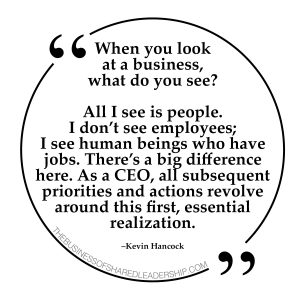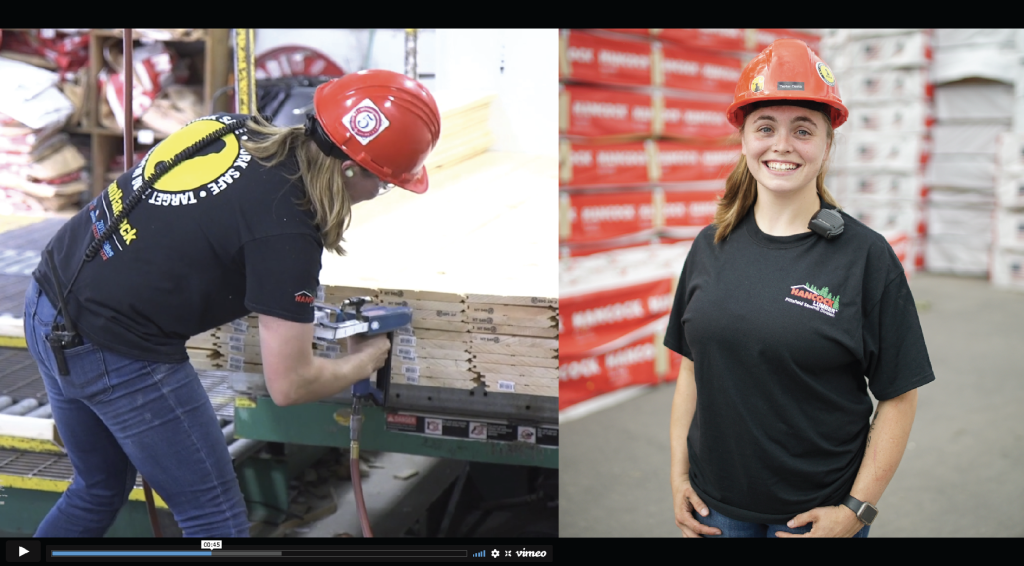“The privilege of a lifetime is being who you are.”
—Joseph Campbell
 It would be impossible to acknowledge the oneness that defines our universe and then go back to work as a supervisor, executive, or team leader and manage “employees” the old-fashioned way—barking out instructions with a heavy hand.
It would be impossible to acknowledge the oneness that defines our universe and then go back to work as a supervisor, executive, or team leader and manage “employees” the old-fashioned way—barking out instructions with a heavy hand.
Workers historically have been commodities. Like inventory, machinery, and equipment, a work hour was something to be deployed, measured, and maximized for the good of the corporation. Workers existed to serve the company and did so at the will of those in charge. With a modern understanding of oneness in mind (the awareness that everything that exists is connected and interrelated), it’s helpful to take a fresh look at the place of work and the culture within it.
When you look at a business, what do you see?
All I see is people. I don’t see employees; I see human beings who have jobs. There’s a big difference here. As a CEO, all subsequent priorities and actions revolve around this first, essential realization.
In the world we live in, what you see determines what you get. If I were to see employees in a commoditized and dehumanized sense, then I would correspondingly see their work hours as company assets to be directed and controlled. Alternatively, if I were to see amazing human beings who voluntarily are devoting a portion of their time and talent to our company, then I would see them as guests and be thankful for their presence.
Oneness suggests that if one human is talented, all humans are talented. If one human has a valuable voice, then all humans have a valuable voice. If one human can lead, then all humans can lead. With this mind-set, managing the place of work gets much easier because you recognize that less central management is what’s required. When you see the oneness that binds the universe, you instantly see people in a different light. As one of my dear friends from the Pine Ridge Indian Reservation, Verola Spider, is fond of saying, We are all related.
It is through this modern yet ancient wisdom that the business model flips and reinvents itself. The company begins to transform into an organization designed to serve the people who work there. The new purpose of the company is to make the place of work meaningful for the people who do it in more than just economic ways. The workplace becomes the venue where adults can grow, experiment, learn, laugh, love, test themselves, and self-actualize. As the humans at work thrive, the customer experience blossoms, and corporate performance takes off. Corporate success becomes the outcome of a higher calling.
Here, as always, the intent behind the mission matters. We are not prioritizing people at work so that the company will improve its performance. We are prioritizing the people at work because they are amazing human beings.
Corporate performance accelerates by worrying less about corporate performance.
***
What about corporate productivity, efficiency, best practices, and discipline?
My answer, founded upon a decade of empirical experience, is simple: When human engagement flourishes, all corporate metrics improve. Why do they improve? Because participation becomes voluntary—an act of free choice. When a company honors the people who work there, those people lift the company in return.
According to our safety coordinator, Gregg Speed, People are much more apt to support that which they help to create.
Voluntary self-engagement will outperform mandatory instruction-following, every time. If people feel valued at work and work becomes a place of meaning for those who do it, the reciprocal commitment to the needs of the company will grow in return.
Who carries the burden when work is inaccurate and inefficient?
Sure, the company pays the price, but ultimately, it’s the people doing the work who are victimized by the chaos. Everyone wants the work to be smooth and effective. You don’t need to force this on people.
When humans become the first focus at work, their experience becomes meaningful on a soul’s level. When their experience becomes meaningful, companies strengthen and grow on the wings of soaring humans. In this way, a company unexpectedly becomes great by putting itself second.

***
Thank you for considering my thoughts. In return I honor yours.
Every voice matters. Nestled between our differences lies our future.